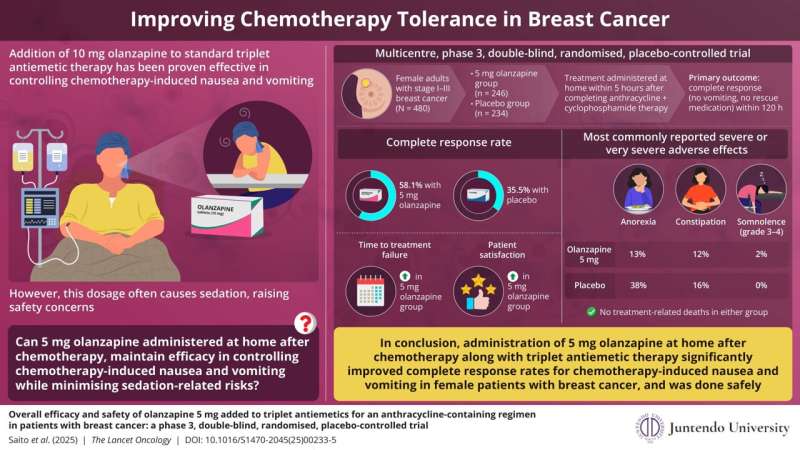What is Nausea? Understanding the Symptoms, Causes, Diagnosis and Treatments
Nausea is an uncomfortable and distressing feeling that you may vomit or experience the urge to vomit. It can arise from many causes and range in severity, from slightly unpleasant to completely debilitating. Understanding more about nausea symptoms, potential causes, diagnosis and available treatments can help you find relief.
Common Symptoms of Nausea
Some of the most common symptoms that occur with nausea include:
- Queasiness or feeling sick to your stomach
- Retching or dry heaves
- Dizziness
- Cold sweats
- Clamminess
- Stomach or abdominal pain/cramping
- Loss of appetite
- Bloating
- Heartburn
- Salivation changes
- Burping
Nausea may come and go or be constant. It can range from mild to severe intensity. Sometimes nausea is accompanied by vomiting, although you can feel nauseated without actually vomiting. The urge to vomit without release is one of the most unpleasant feelings of nausea.
What Causes Nausea?
There are many potential causes of nausea, including:
Pregnancy
Nausea and vomiting are common early pregnancy symptoms, especially during the first trimester. Hormone changes are believed to cause "morning sickness."
Motion Sickness
Riding in cars, airplanes, boats or amusement park rides can trigger nausea by disturbing the inner ear's balance sensors.
Medications
Many medications like antibiotics, antidepressants, antihistamines, pain relievers and chemotherapy drugs may cause nausea as a side effect.
Infections
Viral, bacterial and other infections can cause nausea, like the stomach flu, urinary tract infections, appendicitis, liver infections and meningitis.
Chronic Conditions
Ongoing health issues that may produce nausea include migraines, heart disease, diabetes, thyroid disorders and autoimmune diseases.
Digestive Disorders
Problems with the stomach, liver, gallbladder and intestines often cause nausea. Examples are gastritis, GERD, ulcers, celiac disease, Crohn's disease and gastroparesis.
Surgery
Anesthesia, pain medications and internal damage from medical procedures can trigger nausea after surgery or procedures.
Food Poisoning
Consuming contaminated, spoiled or tainted foods and beverages may causefood poisoning that leads to nausea, vomiting and diarrhea.
Overeating
Eating too much food in one sitting, eating too fast or eating rich, fatty or spicy foods are common triggers of nausea.
Dehydration
Not drinking enough fluids, severe vomiting or diarrhea can cause dehydration and electrolyte imbalances that may result in nausea.
Anxiety and Stress
Excess stress from situations like work pressures, financial concerns or traumatic events can manifest as nausea and vomiting.
Chemotherapy
Powerful chemotherapy medications are designed to kill cancer cells but often produce extreme nausea and vomiting as a side effect.
When to See a Doctor
Occasional, mild nausea that resolves on its own is usually not a major concern. However, you should contact your doctor if you experience:
- Severe, persistent nausea
- Repeated projectile vomiting
- Nausea with fever, headache or neck stiffness
- Abdominal pain, swelling or tenderness with nausea
- Bloody vomit or vomit that looks like coffee grounds
- Inability to keep down any fluids
- Nausea or vomiting after a head injury
- Nausea during pregnancy with abdominal pain
These signs may indicate a medical emergency like a bowel obstruction, kidney disorder, appendicitis, meningitis or other dangerous illness needing prompt treatment.
How is Nausea Diagnosed by a Doctor?
To diagnose the underlying cause of nausea, a doctor will typically:
- Ask about your symptoms and medical history
- Perform a physical exam
- Order lab tests like blood work, urine tests or imaging scans
- Refer you to a gastroenterologist for endoscopies if digestive causes are suspected
Diagnostic tests help identify issues like infections, gastrointestinal blockages, organ problems, cancers or other disorders that may be producing nausea and vomiting symptoms.
Treatments and Medications for Nausea
A variety of treatments are available to provide nausea relief, including:
Over-the-Counter Medications
OTC drugs like Pepcid, Prilosec, Pepto-Bismol, Emetrol and Bonine can ease nausea in some cases. Anti-nausea wrist bands may also help.
Prescription Medications
If OTC nausea treatments aren't effective, doctors may prescribe stronger drugs like Zofran, Phenergan, Reglan, Compazine or Scopolamine patches.
Alternative Therapies
Ginger, mint, chamomile, acupuncture, relaxation techniques, hypnosis, marijuana and CBD oil may relieve nausea for some people.
IV Fluids
Severe dehydration from vomiting and diarrhea can require intravenous fluid replacement to treat nausea.
Surgery
Surgeries like gallbladder removal, tumor resections, bowel obstruction repairs or stomach surgery may resolve underlying issues causing nausea.
Identifying and addressing the root cause of nausea is also important. This may involve changing medications, treating infections, improving hydration, adjusting eating habits, reducing stress and managing chronic health conditions.
How to Prevent Nausea
You can take these steps to avoid bouts of nausea when possible:
- Avoid known triggers like certain medications, foods or activities
- Treat underlying medical conditions causing nausea
- Practice relaxation techniques to reduce stress
- Avoid big meals and eat smaller portions
- Refrain from smoking and limit alcohol intake
- Stay hydrated and drink fluids regularly
- Get fresh air and stay cool to prevent motion sickness
- Take anti-nausea medications before known nausea triggers like chemotherapy
While nausea can't always be prevented, paying attention to potential triggers and treating underlying causes whenever possible can help reduce episodes.
FAQs
What are the most common symptoms of nausea?
Common nausea symptoms include queasiness, stomach cramps, dizziness, vomiting, loss of appetite, burping, cold sweats, salivation changes and an urge to vomit without release.
What typically causes nausea?
Frequent causes of nausea include pregnancy, motion sickness, infections, medication side effects, chronic health problems, digestive disorders, anxiety, chemotherapy and overeating.
When should you see a doctor for nausea?
See a doctor for severe or persistent nausea, repeated vomiting, nausea with fever or neurological symptoms, bloody vomit, inability to keep fluids down, or nausea after an injury.
How is nausea diagnosed?
Doctors diagnose nausea by asking about symptoms, performing a physical exam, ordering diagnostic tests like bloodwork and scans, and potentially referring to a gastroenterologist if digestive causes are suspected.
What are some effective nausea treatments?
Treatments for nausea include OTC or prescription medications, alternative therapies like ginger or mint, IV fluids for dehydration, addressing underlying causes, and for chronic cases, surgery.
Disclaimer: This article is for informational purposes only and does not constitute medical advice. Always consult with a healthcare professional before starting any new treatment regimen.
Related Coverage
Learn about ondansetron side effects, how to manage them, and what to expect during treatment for nausea and vomiting....
Nausea is a common side effect of fasting. Drink water, use acupressure, take supplements like ginger, and relax to ease symptoms. See a doctor if nausea is severe....
Explore the potential causes of tea-induced nausea, such as caffeine, tannins, and acidity, and discover effective strategies to prevent and alleviate this discomfort....
Find effective chemo-induced nausea relief with low-dose olanzapine, diet tips, and safe strategies to stay strong during treatment....
When you feel sick to your stomach, use creative euphemisms like “tossing cookies” or “driving the porcelain bus” instead of saying “throwing up.” More polite and funny synonyms for vomiting....
Nighttime nausea has many potential causes including GERD, pregnancy, migraines, gastroparesis, anxiety, and medication side effects. Tips to relieve and prevent nausea....
Do you feel nauseated at night as a female? Discover common causes like hormones, acid reflux, stress, food sensitivities. Get tips to prevent and treat nausea....
Find out the correct ondansetron dosage for adults and kids, timing, forms, and safety tips to relieve nausea quickly and safely....
Nausea involves feeling like you may vomit. Pregnancy, infections, medications, digestive issues and motion sickness are common causes. Treatments include medications, lifestyle changes and addressing underlying conditions....
Queasiness describes an unsettled stomach sensation related to early nausea without necessarily vomiting. Causes include medication, motion sickness, stress, food triggers....







